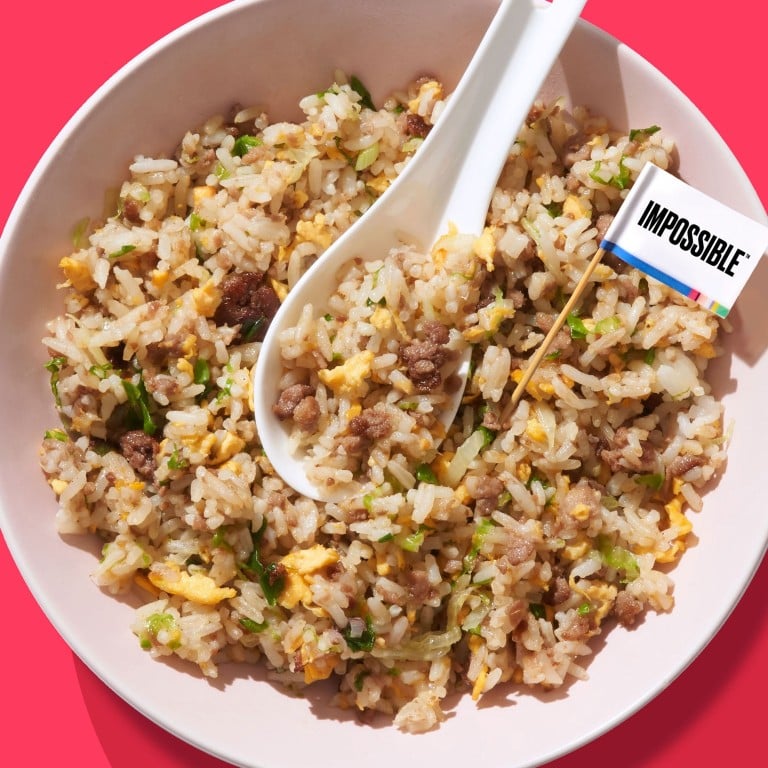
Plant-based meat in Hong Kong supermarkets and at McDonald’s – going vegetarian or vegan has never been easier
- News that Impossible Beef is now available at ParknShops in Hong Kong is the latest indicator of plant-based diets becoming more mainstream in the city
- Growing movement sees OmniPork luncheon meat sold at McDonald’s and served on Cathay Pacific flights and one hotel chain going completely vegetarian
Hong Kong diners no longer have to go to a restaurant to enjoy an Impossible plant-based burger – they can now walk into any ParknShop supermarket and buy some Impossible Beef to cook at home.
Hong Kong and Singapore are the first places outside the United States to have the vegan “meat” available in supermarkets. For non-meat eaters, it’s a welcome addition to what has been a limited menu and another sign that the notion of a plant-based diet has moved from the periphery to the mainstream.
Impossible Foods chief executive and founder Pat Brown explained last week that because of the Covid-19 pandemic, the California-based company’s roll-out into retail shops has become a priority. “Ninety-five per cent of our [US] business [before the pandemic] was in food service, [as was also the case] in Hong Kong and Singapore. When the epidemic hit, one of the hardest-hit sectors in the economy was restaurants,” he said.
The company therefore wanted consumers to have ready access to the product. “We are now, in the US, in more than 13,000 grocery stores, a 100-fold increase from the beginning of the year,” Brown said.
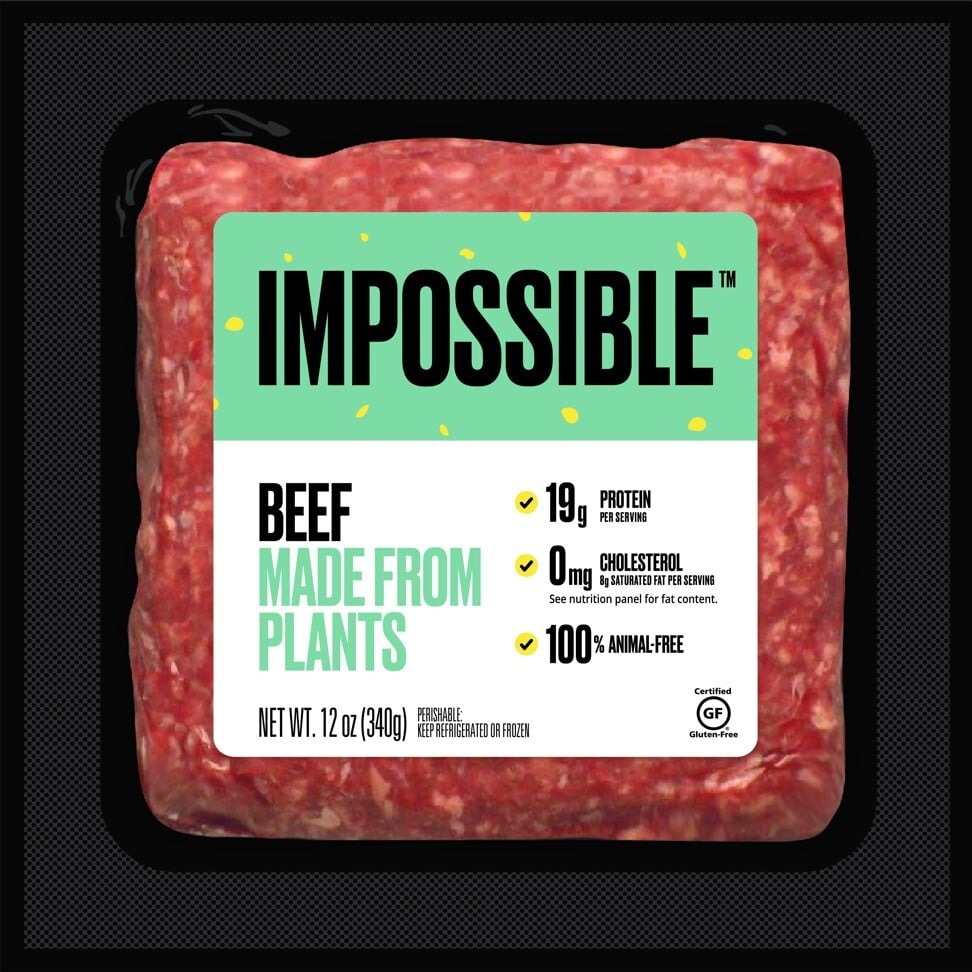
Since January, there has been a 150 per cent increase in demand for Impossible Food products at the 700 restaurants in Hong Kong and Macau that serve the plant-based protein, Brown said. For him, this has made his company’s mission – to make the use of animals in the food system obsolete and to reverse climate change – one step closer.
“If you replace 1kg [2.2 pounds] of beef from a cow with 1kg of Impossible Beef, the savings in greenhouse gas emissions is equivalent to what’s emitted flying in a passenger jet 300km [186 miles], or 130km driving in a typical compact car. It’s a massive, massive greenhouse gas footprint,” he said.
‘I almost cried’: vegan on his plant-based luncheon meat
When it started in 2012, Green Monday began promoting the idea of going meat-free one day per week, and offering vegetarian and vegan food options at the first Green Common shop in Wan Chai with the slogan “Make change happen, make green common”.
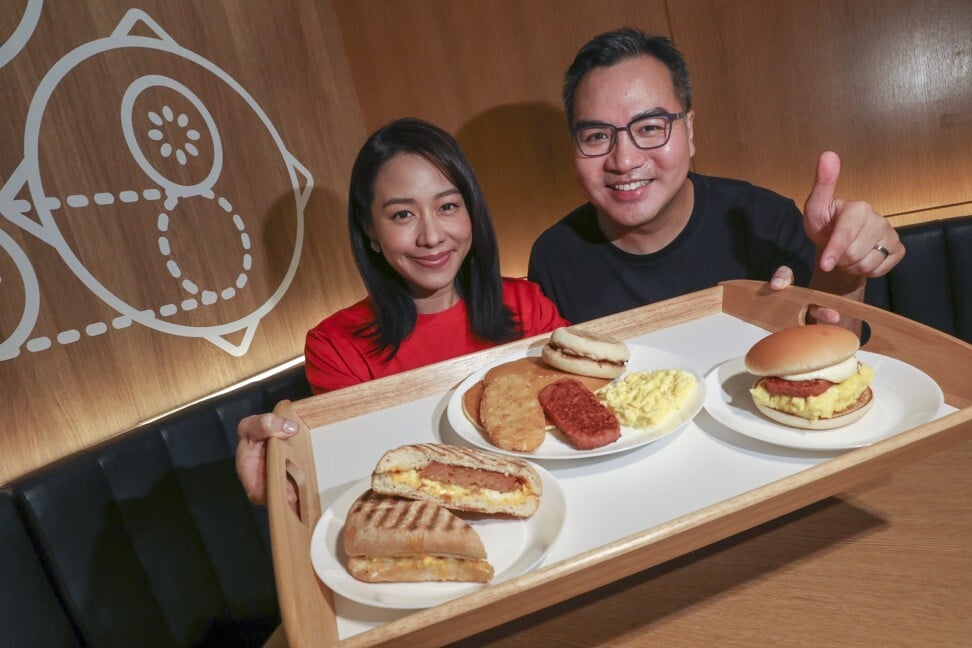
The fast-food giant recently added six dishes to its menu featuring OmniPork Luncheon, a meatless version of Spam, in items such as a burger with scrambled eggs, and a breakfast platter.
Hong Kong and Asian people “are crazy for luncheon meat”, Yeung said, adding that now a diner who would typically choose a meat option may see the OmniPork Luncheon options and order it on their next visit.
An OmniFoods survey revealed that Hongkongers prefer luncheon meat to bacon, sausage and ham, and that it is also “the most beloved” meat item for many Koreans, Malaysians and Singaporeans.
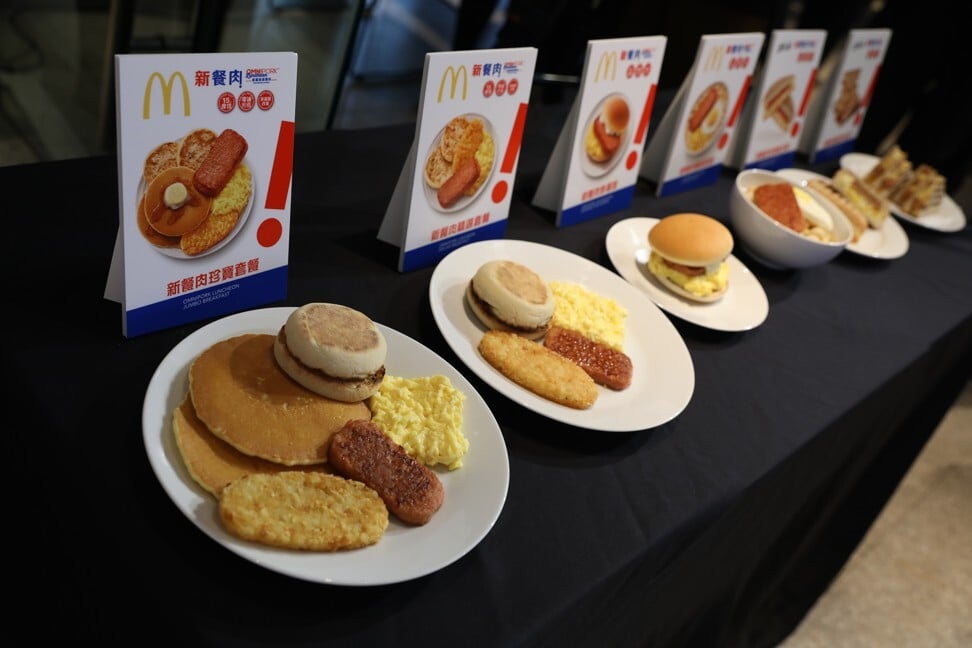
To make going green common, Yeung said, the company’s message needs to become more widespread. Of the new collaboration with McDonald’s, he said: “If this is not reaching the masses, I don’t know what is.” The company’s OmniPork plant-based minced meat is already widely available in Hong Kong supermarkets.
McDonald’s is not the first fast-food chain to offer plant-based items in Hong Kong. In July, KFC featured Beyond Fried Chicken from California-based Beyond Meats in a burger and plant-based nuggets, selling three times the projected quantity in the first week. Impossible and Beyond offerings are also on the menu in local burger joints such as The Butchers Club and Beef & Liberty.
While interest in eating plant-based food has grown of its own accord, the coronavirus pandemic has helped to further highlight the exploitative labour conditions in meat-processing plants as well as the mass culling of animals, prompting consumers to turn to plant-based protein alternatives.
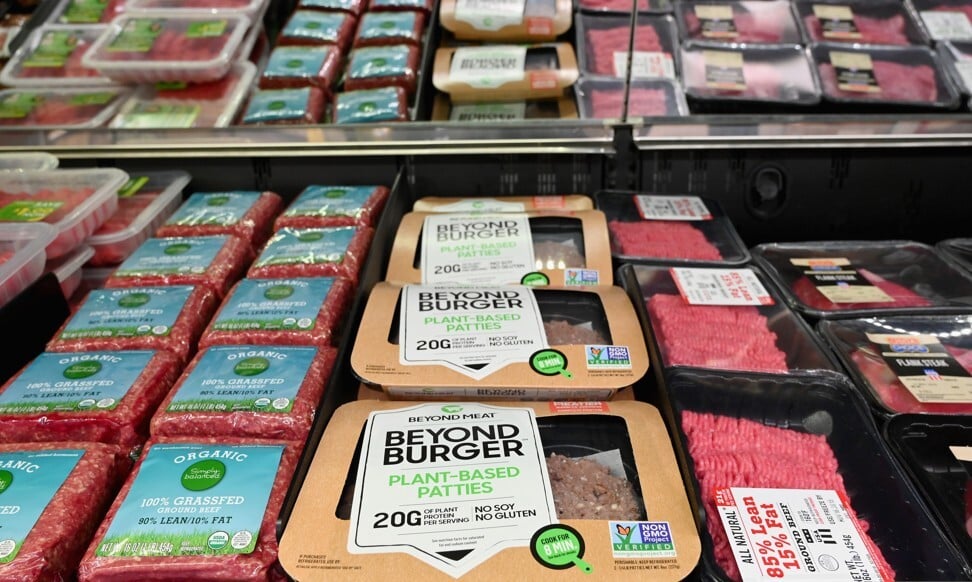
Food tech is now seen as big business and investors are lining up to participate in Hong Kong’s green revolution. In September, the Green Monday Group announced it had raised US$70 million in financing led by US-based TPG Capital’s The Rise Fund and Hong Kong’s Swire Pacific. Taiwanese-American actor and singer Wang Lee-hom has backed the group, calling OmniPork “a completely plant-based ‘pork’ that is good for our health, good for the planet, and yummy in the tummy”.
Swire’s development director David Cogman said in a release: “The supply chain for meat is unsustainable and the world’s current animal husbandry practices are hugely damaging to the environment. Food supply is one of the critical problems that society has to solve over the next decade, along with issues like water supply and climate change.”
TPG’s The Rise is known for investing in companies with a positive environmental impact. Its founding board is packed with powerhouse names including Irish singer-songwriter activist Bono, Canadian entrepreneur and film producer Jeff Skoll, Virgin Group founder Richard Branson, and Laurene Powell Jobs, the widow of Apple founder Steve Jobs.

Ovolo Hotels Group chairman and CEO Girish Jhunjhnuwala said that its Sydney property, Ovolo Woolloomooloo, went vegan three years ago. The hotel sits on the wharf, alongside seven restaurants famous across Australia that serve seafood and Chinese and Italian food. Jhunjhnuwala decided to take a different tack by going meat-free – and it was a success.
“This gave me a message that we are going on the right track … so I just decided to take the plunge,” the hotelier said. “It’s the right thing to do in these difficult times. In the beginning it was slow, but when [US plant-based celebrity chef] Matthew Kenney came out, it took off. It’s full every single day.”

Veda in Ovolo Central on Hong Kong Island is the city’s first hotel restaurant to be completely vegetarian from its opening. Located next to a Central district building where Pure Yoga has a busy studio, Veda is frequented by gym enthusiasts as well as a business crowd looking for plant-based choices. Room service at the hotel will now also be strictly vegetarian.
Ovolo Southside, on the south side of Hong Kong Island, is also undergoing a green revolution, with food and beverage manager Juan Giménez saying he has been getting ready to turn the Wong Chuk Hang property completely plant-based.
“We are not necessarily tied to a kitchen style … we can use different techniques from around the world. It gives you a lot of freedom and room for creativity, to be playful and do the things you couldn’t do [because they were] defined by a cuisine,” he said.
“[Ovolo Southside restaurant] Komune … was mostly serving seafood and meat dishes, but we found a chef [Raul Tronco Calahorra] who is vegetarian himself. The idea is to make you not miss meat options … we will introduce things you know, but with a twist.”
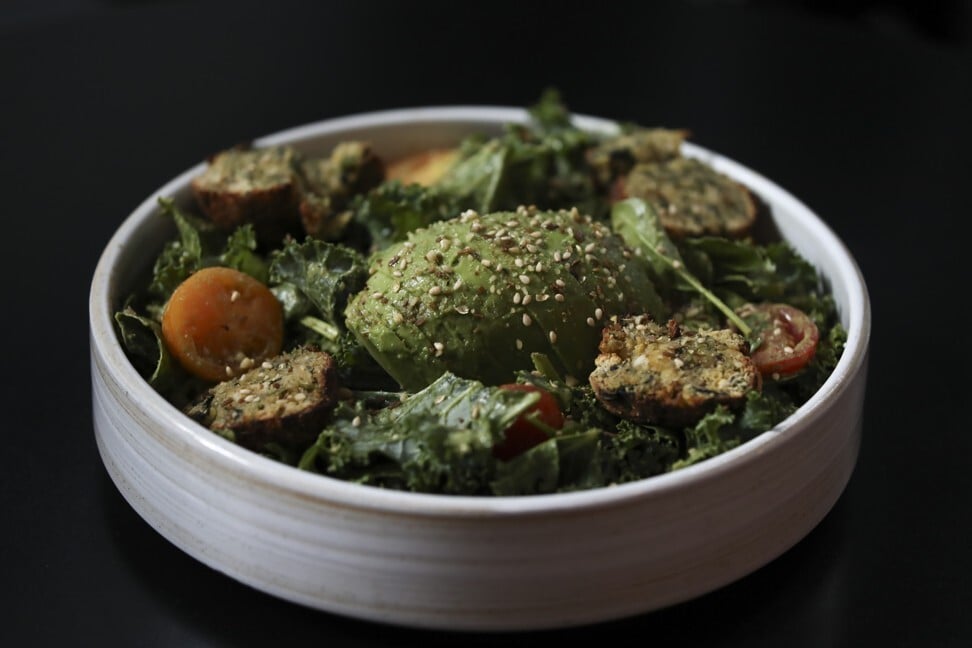
The hotel group is aiming to go vegetarian for a year. “I’m a little bit worried, a little bit scared, but who isn’t?” Jhunjhnuwala said. “We’ll do it for a year and I hope it will continue, and if it doesn’t work, well, we tried.
“The modern traveller today, who has discerning tastes … understands there is nothing wrong with having a vegetarian diet. If it’s presented well, it’s cooked well, and it’s not just a bunch of steamed vegetables thrown at you, you can have a great time. We [vegetarians] don’t say no to alcohol,” he said with a chuckle as he sips his Negroni cocktail.
“When you go to restaurants in Hong Kong that have vegetarian options, that means they have thought it through. They know today’s diners are looking for options.”

